275 MacLaren Street, Ottawa, ON K2P 0L9
Introduction
The City of Saskatoon has declared July 1, 2015 – June 30, 2016 a Year of Reconciliation. An important piece of this historical journey is to honor the Calls to Action set forth by the Truth and Reconciliation Commission of Canada. Reconciliation is an ongoing process of dialogue and engagement between Indigenous people and the rest of the Canadian public. In some instances, engagement may mean going back and repairing past mistakes and forging new partnership models as a way to move forward. “Wîcihitowin” is a Cree and Saulteaux word that means, “They help each other” or “working together”. It’s a word that describes the collective process involved in helping/sharing with one another. The word helps us understand the concept of reconciliation and that it is by helping each other reach our optimum humanity. “Our societies were finished. We knew how to treat the world. We knew how to treat other people. We understood ethics. We understand the spiritual.”
The Wîcihitowin Aboriginal Engagement Conference, held in Saskatoon in November 2015, brought together key investors and community members who were interested in authentic engagement with Indigenous people. During the conference, a two-day meeting took place that brought together 24 First Nations and Métis Traditional Knowledge Keepers from across Saskatchewan. The Traditional Knowledge Keepers represented many nations that included representatives of the Cree, Saulteaux, Dene, and Métis nations. The purpose of this gathering was to develop a protocol guide that would help the City of Saskatoon and its many partners to respectfully engage with First Nations and Métis Traditional Knowledge Keepers. The Traditional Knowledge Keepers were deeply committed to ensuring that the information they shared would support this work in a meaningful way.
Following the gathering of the Traditional Knowledge Keepers, it was felt that there should be a provincial wide engagement of Traditional Knowledge Keepers. As a result, 31 Traditional Knowledge Keepers from across the province of Saskatchewan were approached in their own communities to contribute to the development of this guide to authentic engagement of Traditional Knowledge Keepers. The aim was to provide insights into the appropriate protocols to follow when individuals, partners, and agencies are seeking the knowledge, wisdom, and advice of Traditional Knowledge Keepers. The Traditional Knowledge Keepers were identified by their own communities to participate in this provincial engagement.